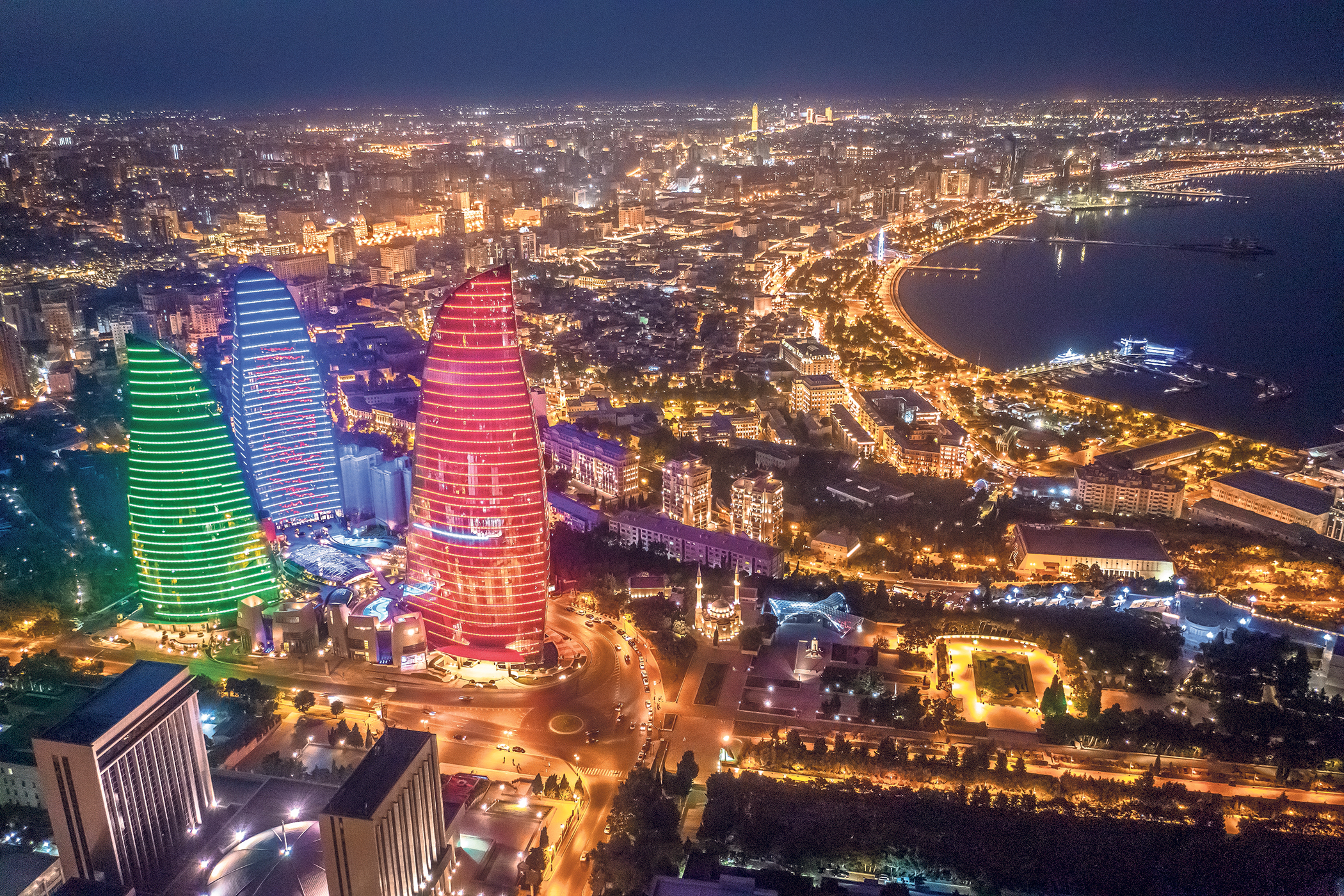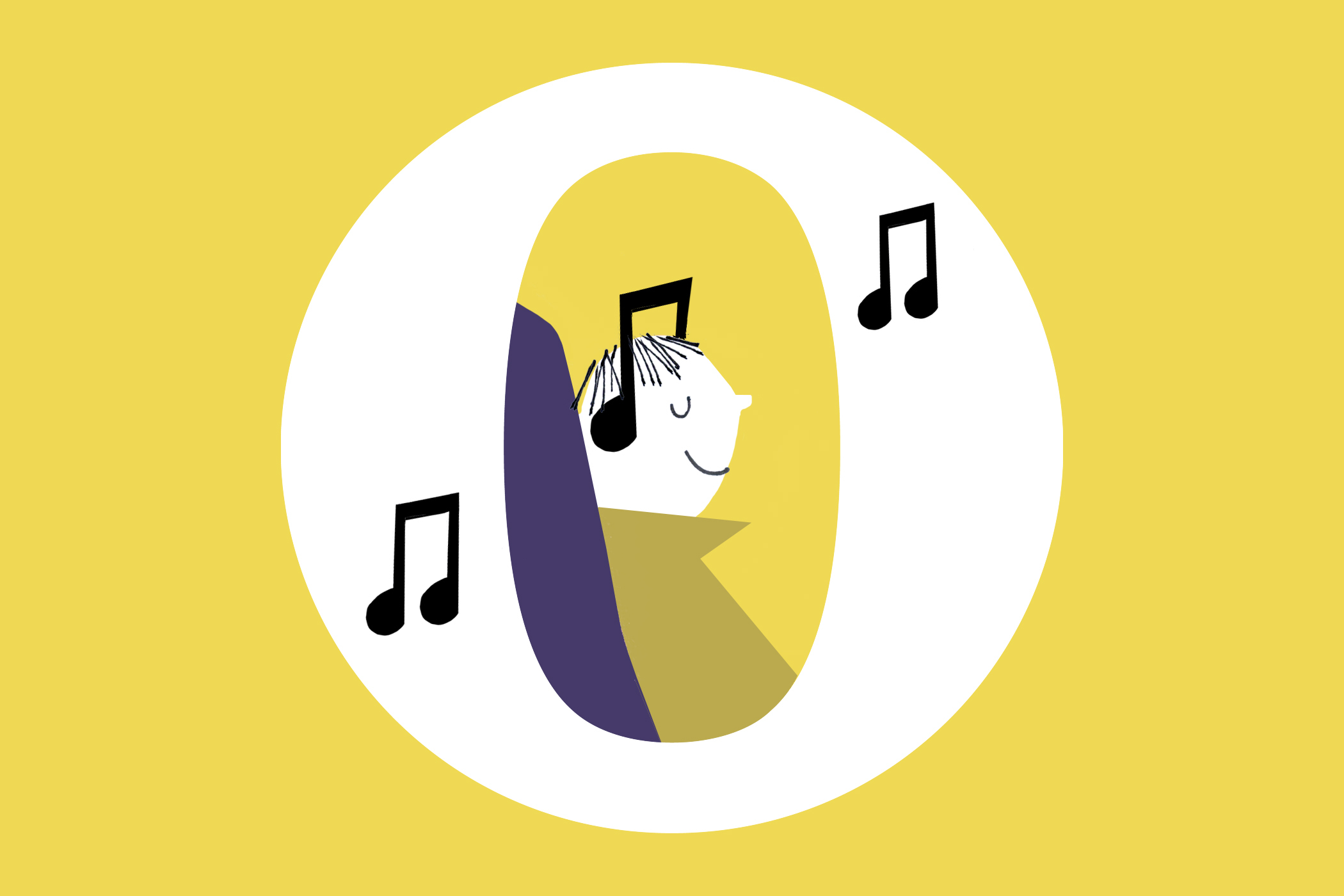Monday
Back in Baku – my birthplace – after what feels like a lifetime. The wind off the Caspian Sea still smells of salt and oil, the two eternal notes in this city’s symphony. I’m here for the Baku International Arts Festival (BIAF) – to conduct on 7 November and play again on 16 November [today]. Between rehearsals, memories rise everywhere: the street where I grew up, the Philharmonic Hall steps I once climbed as a student, the skyline that keeps reinventing itself.
The taxi driver from the airport gives me a full tactical breakdown of Qarabağ FK before we even reach the city. “They play with heart,” he says, pounding his chest. “Like good musicians.” I nod – in Baku, football and music are the twin religions, and the line between them is thinner than most imagine.
Tuesday
Rehearsals at the Philharmonic. The orchestra sounds magnificent – alert, lyrical, demanding. I sense the excitement of the coming concert. Outside, the city is alive with flags, cafes and laughter. Somewhere near Fountains Square, a young man plays mugham [traditional Azeri music] on a tar [like a long-necked lute], and the melody drifts through an open window. That’s Baku: where Ravel can coexist with mugham, where East and West never stop conversing.
In the evening, I walk along the Boulevard, where the lights shimmer across the Caspian. The skyline has changed, but the rhythm of the city hasn’t – always restless, always improvising.
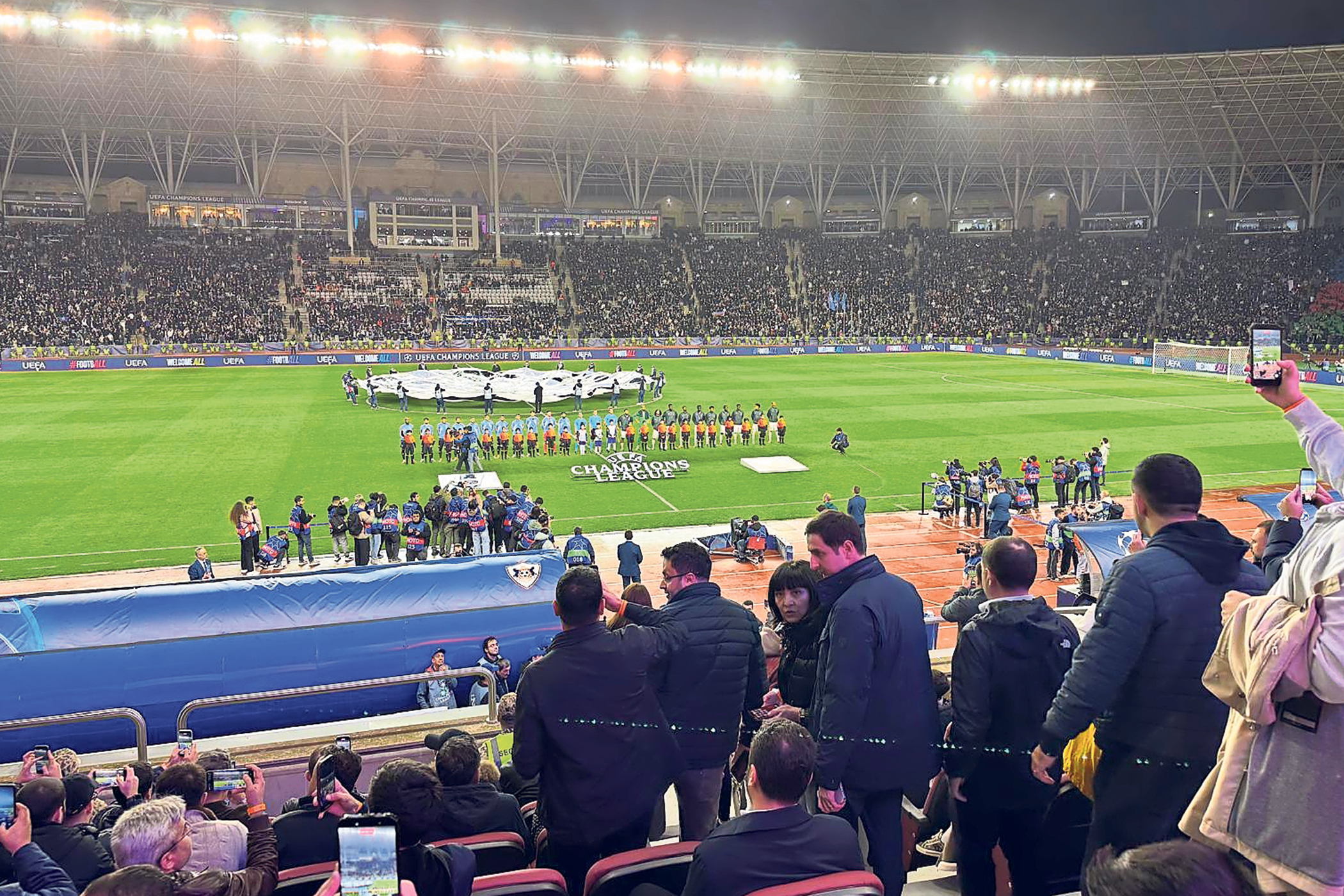
Wednesday
Tonight, Baku becomes a football city. Qarabağ are playing Chelsea, my team of nearly 40 years. In London, I share season tickets with friends, but now I’m watching them from a VIP box at the Tofiq Bahramov Stadium – named after the famous linesman from the 1966 World Cup final. A surreal experience. I’m surrounded by the owners of both clubs; the atmosphere feels almost operatic.
Chelsea score first. The home crowd groans. Then Qarabağ strike back – once, twice – before half-time. The stadium erupts. I can’t help but smile. When the match ends in a draw, it’s as though the whole city wins. That’s the spirit of Baku: resilient, proud, beautifully unpredictable.
Thursday
Newsletters
Choose the newsletters you want to receive
View more
For information about how The Observer protects your data, read our Privacy Policy
Five extraordinary guest musicians have flown in for BIAF — from Spain, Georgia, France, Germany and Sweden. Together we hold a masterclass at the Baku Music Academy, where I’m now an honorary professor. The students are brilliant, curious and bold. Watching them play reminds me of what my father once said — that music is “the highest form of conversation”.
In the evening, I decide to show my friends a different side of Baku – the one that hides in its stones and stories. We dine at a remarkable restaurant in the Old City called Kurban Said. Its owner, a passionate historian, tells us about the enigmatic Lev Nussimbaum, the writer who became Essad Bey and later perhaps the mysterious Kurban Said, author of Ali and Nino, a love story considered by many to be the national novel of Azerbaijan. His life mirrors the city itself: layered, improbable and endlessly fascinating.
As we listen, the candlelight flickers against the ancient walls and I feel what I always do here, that Baku is less a city than a chorus of identities, all singing in harmony.
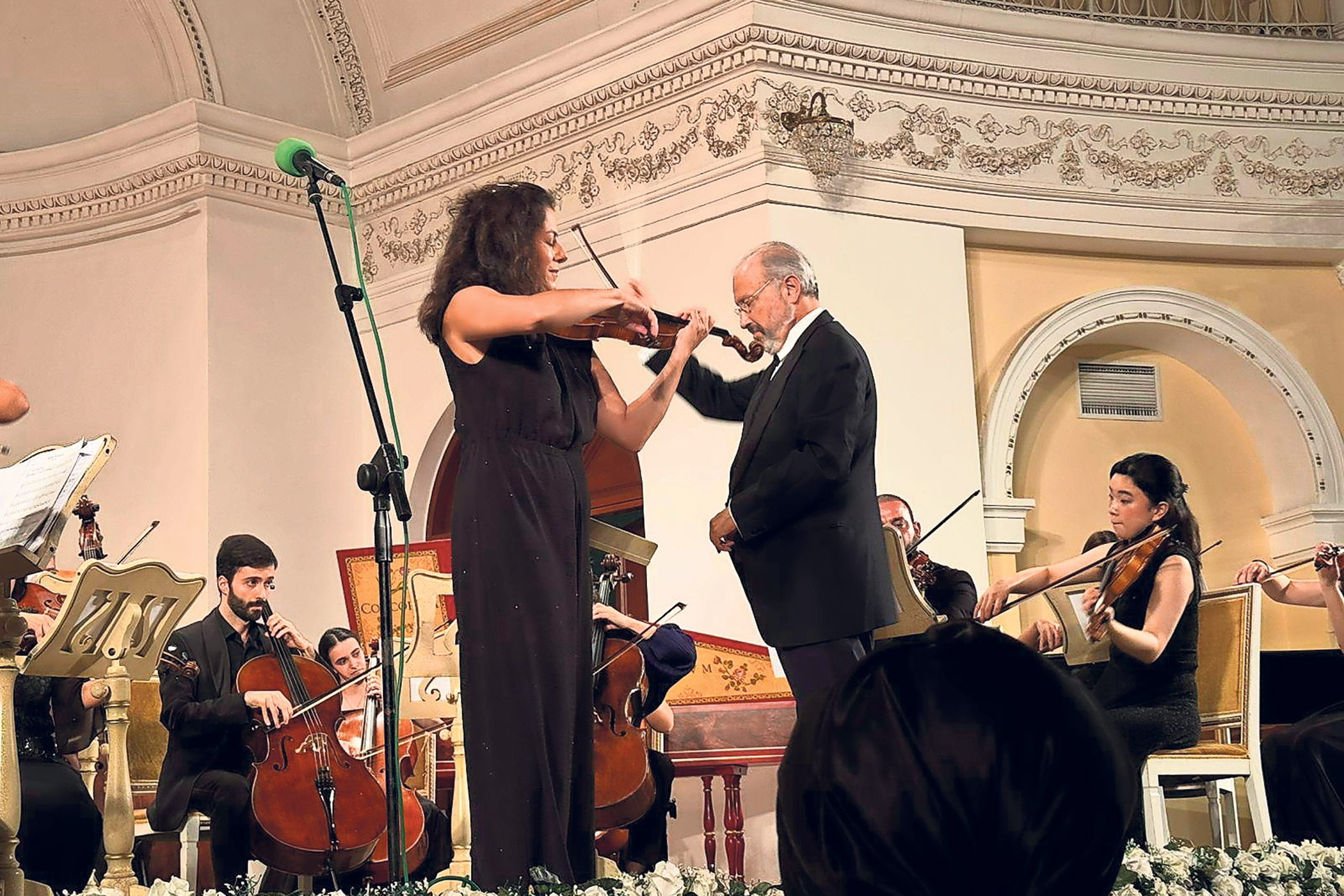
Friday
Tonight’s concert is the heart of this visit. It’s dedicated to my father, Julian Sitkovetsky, who was born exactly 100 years ago today, in Kyiv, 1925. He was one of the most extraordinary violin talents to have come out of the Soviet Union. A multiple prize winner, he left a number of phenomenal recordings before he died of lung cancer at just 32. I’ve felt his presence all week, in rehearsals, in the silences between notes, in the way Baku itself seems to breathe music.
As I step on to the podium, I sense a kind of completeness. My father’s violin legacy, my mother’s pianistic brilliance — Bella Davidovich, born here in Baku and now 97 — and my own journey all converge in this city where my life began. The orchestra plays with both discipline and heart; the audience listens in reverent stillness. For a moment, I’m not just conducting music, I’m conducting memory. When the final chord fades, I let the silence linger. It feels like my father’s voice, still resonant, still alive.
Saturday
The day after a concert always feels like waking from a vivid dream, but BIAF doesn’t pause. That evening, I attend a performance by the Canadian Ballet of Toronto, an extraordinary staging of Hamlet directed by the visionary Robert Lepage.
Lepage’s imagination knows no borders: Shakespeare’s tragedy unfolds through movement, light and shadow in ways I’ve never seen before. The audience is spellbound. When the curtain falls, the applause is thunderous – not polite, but grateful. Stepping out into the cool night, I realise that Baku itself feels a little like Hamlet: torn between past and future, East and West, for ever searching for its own truth – and finding beauty in the struggle.
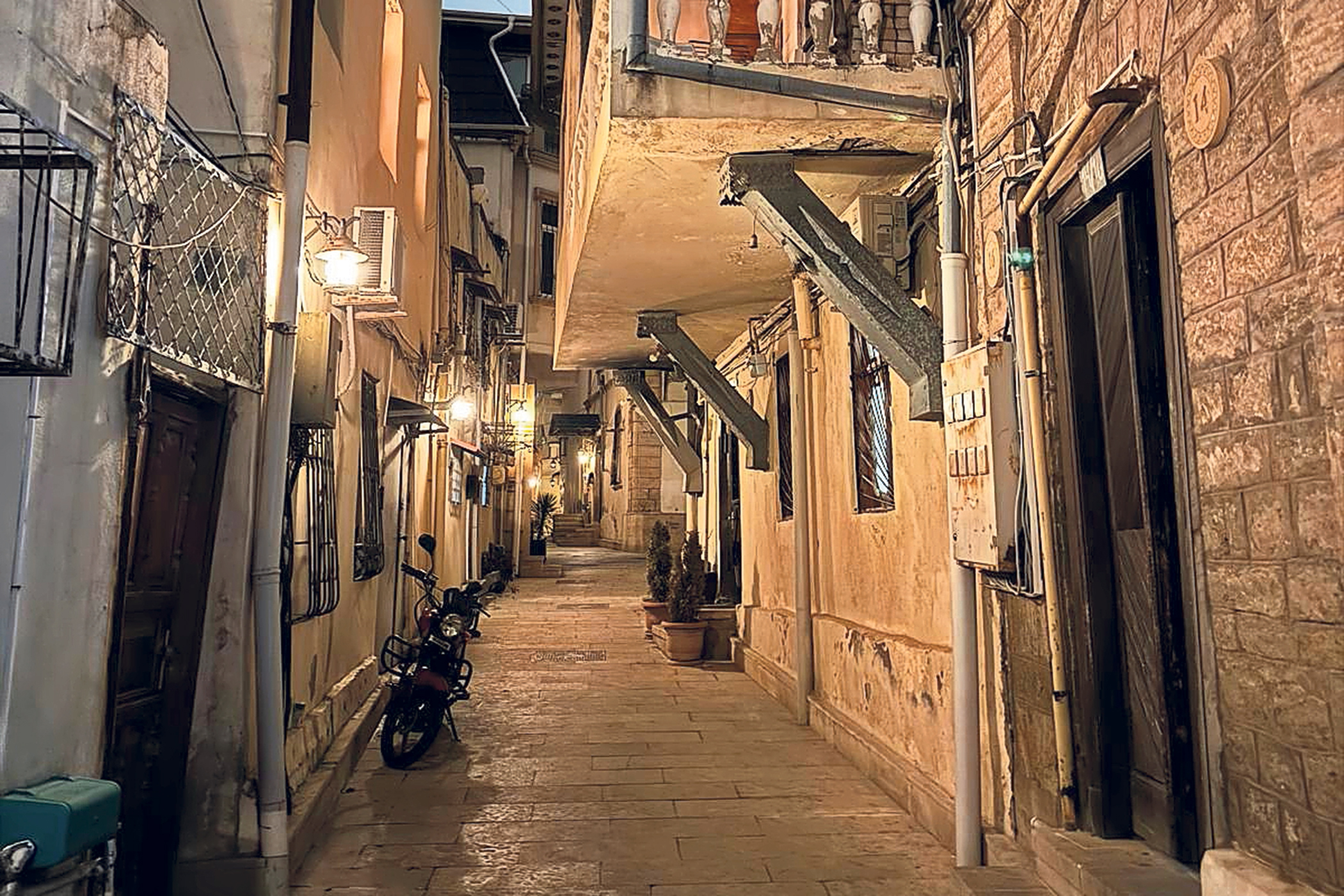
Sunday
A rare day of quiet before the next concert. I walk again along the waterfront, the same stretch where I once watched flames rise from oil on the water – that childhood vision of Baku’s fire, beauty and danger.
As the light fades, I think of my parents. My father, gone too soon but still teaching me through sound; my mother, whose strength remains my compass. Baku feels like both a mirror and a promise – a city that never forgets its past but keeps composing its future.
This week, it gave me both: remembrance and renewal. And as I pack my scores, I know that between the music and the football, the city has reminded me of something essential: how rhythm, memory and belonging always find their way home.
Photographs by Feng Wei/Getty and Dimitry Sitkovetsky
